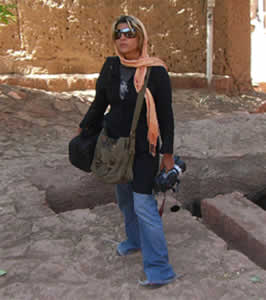 Born and brought up in Iran, Katayoun Afrooz undertook her formal education and training in Cinema in the United State. She has been working as a professional filmmaker and artist. She holds a Degree both in Cinema and TV production.<br>
Born and brought up in Iran, Katayoun Afrooz undertook her formal education and training in Cinema in the United State. She has been working as a professional filmmaker and artist. She holds a Degree both in Cinema and TV production.<br>Abyaneh, red village is Katayoun’s first short documentary. <i>Abyaneh, red village</i> premiered in 2007 at the Los Angeles international shorts film festival.<br>
Katayoun’s next documentary short film <i>”Bistoon & its secrets”</i> was shot entirely in Iran. Katayoun is an U.S. citizen living in Los Angeles, CA
Abyaneh is an ancient village in Iran, situated 40 kilometers from the Iranian Nuclear Power Plants in Natanz, on the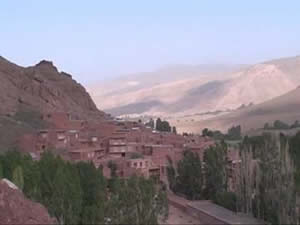 northwestern slope of Karkas Mountain.
northwestern slope of Karkas Mountain.
Being a village of great antiquity, the village has preserved in itself like a live museum, monuments from very far ages to this day. With a unique reddish hue, Abyaneh is one of the oldest villages in Iran. The people of Abyaneh are in love with their traditions, their culture and their village.
The village has 1500 years written history but the people of Abyaneh will tell you otherwise, they would say the village has been there for more than 6000 years.
Cinema Withot Borders: Please tell us a little bit about yourself.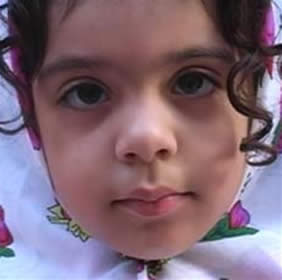 Katayoun Afreez: I was born and raised in Tehran, Iran into a wonderful family. My family is very well educated and very supportive of me learning to think and express myself, even at time when it was not encouraged for females. After finishing high school, I came to the US and continued my education.
Katayoun Afreez: I was born and raised in Tehran, Iran into a wonderful family. My family is very well educated and very supportive of me learning to think and express myself, even at time when it was not encouraged for females. After finishing high school, I came to the US and continued my education.
CWB: When did you get interested to become a filmmaker?
Katayoun: Thought growing up in a repressed society I watched movies as an escape, I specially enjoyed American and Italian films. Movies were always a very big deal in our home. When I came to the U.S I took a cinema class at Santa Monica College and realized then that this is what I wanted to do for the rest of my life.
CWB: Do you think a particular film or filmmaker had an influence over your decision to become a filmmaker?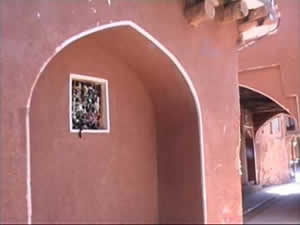
Katayoun: Absolutely, I enjoy multi-layered stories like Fellini’s “Roma”, but the first film that I think influenced me the most was A Clockwork Orange, the power of that film was undeniable. Dariush Mehrjui influenced me too, when I saw “Derakhte Golabi”, I was thinking about it for months to come. His films are so pure and honest.
Also my grandfather, who was a writer and a poet in Iran, was quite a movie buff
as well. Whenever we would go to his house he always had classic movies such as “All about Eve” or “Lawrence of Arabia” ready for us to see, and we would analyze the entire film after watching it.
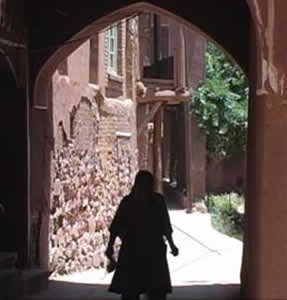 CWB: Tell us about your film education..
CWB: Tell us about your film education..
Katayoun: I did my formal university education in the U.S. I graduated from Columbia film school, which is an amazing school: They focus purely on film and well-known directors. I learned quite a lot. I also took Acting and Directing classes at UCLA, but I have to admit my real education other than traveling, comes from books. I read a lot and quite often.
CWB: What inspired you to make Abyaneh, Red Village?
Katayoun: After graduation I knew in my heart that I had to make my first film in Iran. At the time I wasn’t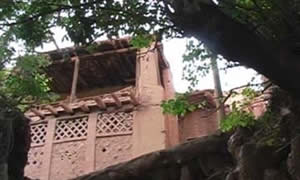 interested in the politics of Iran, I just wanted to capture a window to the greatness of Iran. My mother told me about this ancient village that hardly been touched in thousands of years. I knew then that I wanted my first film be about this extraordinary village.
interested in the politics of Iran, I just wanted to capture a window to the greatness of Iran. My mother told me about this ancient village that hardly been touched in thousands of years. I knew then that I wanted my first film be about this extraordinary village.
CWB: How challenging was making of this documentary?
Katayoun: It was pretty challenging. As you well know, a film is made because of so many people, but I didn’t have that luxury in Iran due to the fact that I didn’t have any permits. So basically I did everything myself.
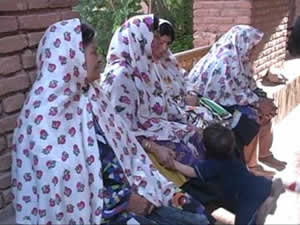 CWB: How was the reaction of the villagers to you?
CWB: How was the reaction of the villagers to you?
Katayoun: Abyaneh is a remarkable village, not like any other village I have ever seen. People are very well educated and open-minded; they are extremely nice and like all Iranians very hospitable. I spent a lot of time talking with them, I even got invited for tea to almost all the homes there!
CWB: Are you planing to stay in documentary field, or you may make fictions, too?
Katayoun: I love filmmaking in general. Any kind of filmmaking interests me. I like the purity of non-fiction films. A good documentary can shake you, show you a glimpse of the world you live in and make you think about the world around you.
CWB: What is your next project?
Katayoun: I just completed another short documentary about Bistoon Mountain in Iran. Bistoon is a fascinating mountain situated in the west of Iran. Besides having some amazing monuments from ancient Persia, the biggest love story of Iranian literature happened in that very same mountain. I would also like to make documentaries about war refugees and women’s rights issues in third world countries.
CWB: Who are your favorite filmmakers?
Katayoun: I have so many but I have to say Darius Mehrjui, Milos Forman, Fellini, Orson Welles, Bahram Beizai and Woody Allen.

